#digestive problems
Explore tagged Tumblr posts
Text
My stomach tries to kill me if I eat foods that have food in them.
59 notes
·
View notes
Text
Autism & GI Issues
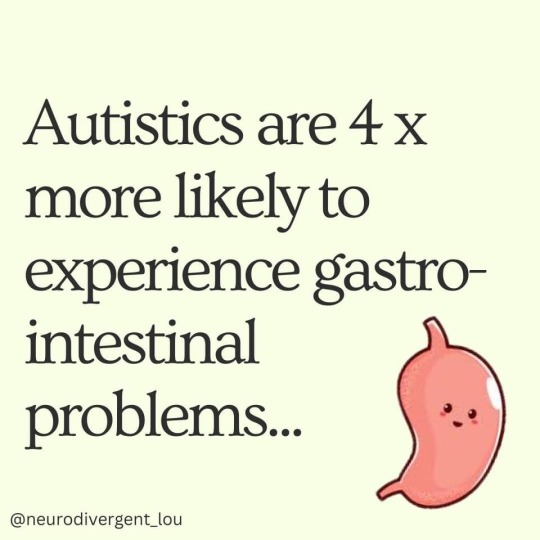
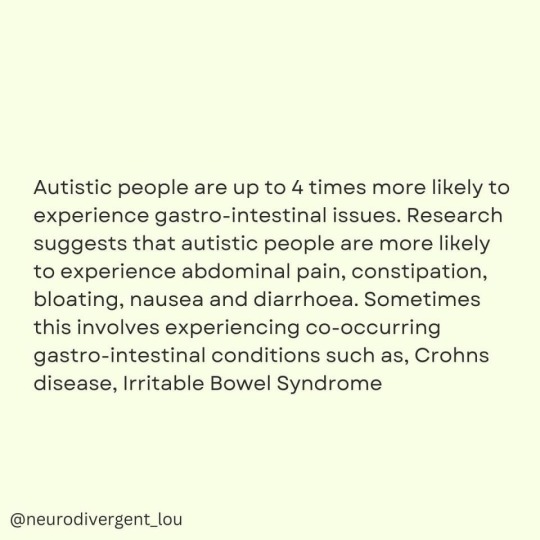
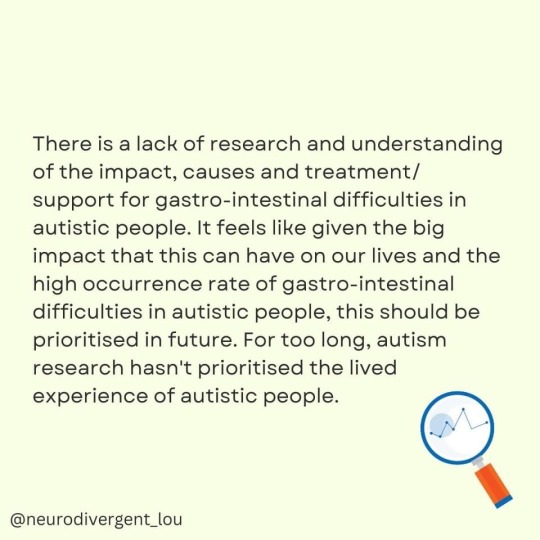
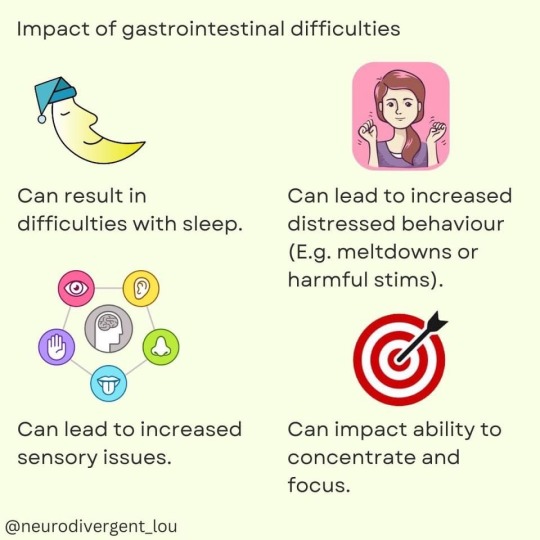
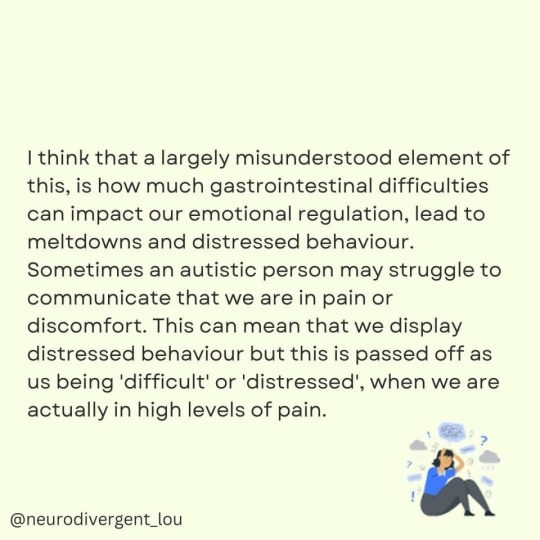
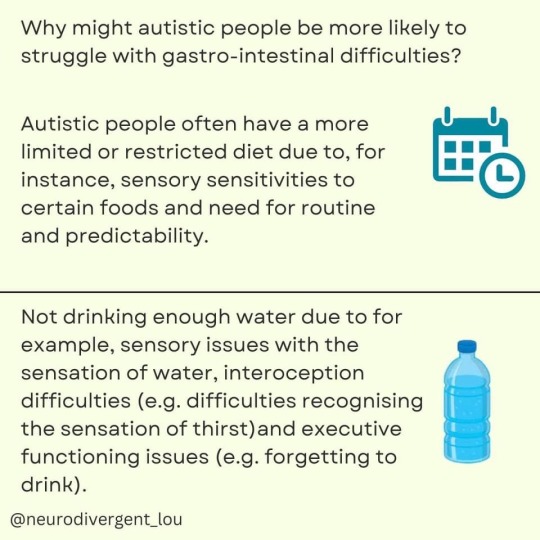
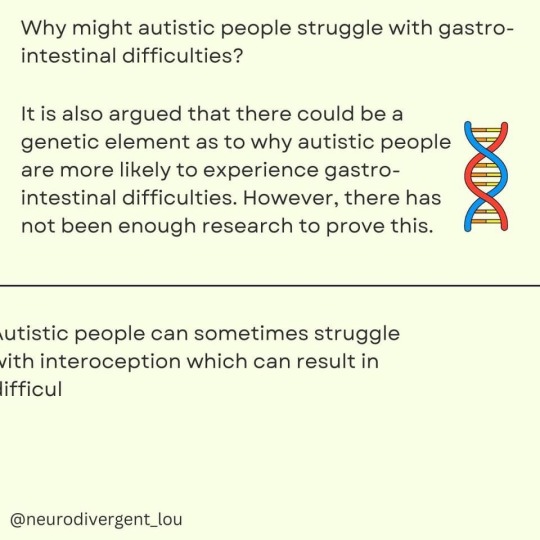
Neurodivergent_lou
#autism#actually autistic#autism and gastrointestinal issues#digestive problems#autism & physical health#source: neurodivergent_lou (Facebook)#feel free to share/reblog#tw bright colors#tw eye strain
123 notes
·
View notes
Text
Maintaining Digestive Health with Age: Key Lifestyle Adjustments

As we grow older, maintaining digestive health becomes increasingly important. The way our digestive systems work can be affected by age-related changes in the body as well as lifestyle choices. You can maintain the integrity of your general health and gut health by being aware of these changes and making the necessary changes. For expert advice, you can consult the top 10 gastroenterologist in Surat, who specialize in digestive health across all age groups. Let's explore some crucial advice for maintaining optimal gut health as you age.
Why Digestive Health Changes with Age
With age, several factors can contribute to changes in digestive health, such as:
Slower Digestive Process: The muscles in your digestive tract may weaken, slowing the movement of food and leading to issues like constipation.
Reduced Enzyme Production: The body may produce fewer enzymes needed to digest food, which can cause bloating or indigestion.
Medication Side Effects: Many older adults take medications that can affect the digestive system, leading to discomfort or other issues.
Lifestyle and Diet: Sedentary habits and a lack of fiber in the diet are common contributors to poor digestive health.
The first step in taking preventative action to preserve the health of your digestive system is recognizing these changes.
Key Lifestyle Adjustments for Digestive Health
Here are some practical strategies to keep your digestive system in good shape as you age:
1. Eat a Balanced Diet
A healthy diet rich in nutrients is crucial for maintaining a strong digestive system.
Focus on Fiber: Foods like whole grains, fruits, and vegetables help regulate bowel movements and prevent constipation.
Stay Hydrated: Drinking plenty of water aids digestion and helps keep the digestive tract functioning smoothly.
Limit Processed Foods: These are often high in fat, sugar, and salt, which can slow digestion and cause inflammation.
Incorporate Probiotics: Yogurt, kefir, and other fermented foods are excellent sources of good bacteria that support gut health.
2. Stay Active
Physical activity is not only good for overall health but also plays a crucial role in maintaining digestive health.
Exercise Regularly: Activities like walking, yoga, and swimming can stimulate digestion and reduce the risk of constipation.
Improve Posture: Sitting up straight during and after meals helps food move through the digestive tract more effectively.
3. Manage Stress
Chronic stress can negatively impact your digestive system, leading to issues like acid reflux or irritable bowel syndrome (IBS).
Practice Relaxation Techniques: Deep breathing, meditation, and mindfulness can lower stress levels and improve digestion.
Maintain a Regular Schedule: Eating meals at the same times each day helps regulate your digestive system.
4. Get Regular Check-Ups
As you age, it’s essential to stay proactive about your digestive health by consulting with a specialist.
Screenings and Tests: Regular check-ups, including screenings for colon cancer or other gastrointestinal conditions, can help detect problems early.
Consult Experts: A gastroenterologist in Surat can provide personalized advice and treatment for maintaining your digestive health.
Common Digestive Issues in Older Adults
Here are some common digestive issues that aging individuals may face, along with tips on managing them:
1. Constipation
Causes: A lack of fiber, dehydration, or reduced physical activity.
Solutions: Increase your fiber intake, stay hydrated, and exercise regularly.
2. Acid Reflux
Causes: Weakened muscles at the esophagus-stomach junction.
Solutions: Eat smaller meals, avoid lying down after eating, and limit trigger foods like caffeine and spicy dishes.
3. Diverticulosis
Causes: Small pouches form in the colon due to a low-fiber diet.
Solutions: Increase fiber intake and avoid processed foods.
4. Lactose Intolerance
Causes: Reduced production of lactase, the enzyme that digests lactose.
Solutions: Choose lactose-free dairy options or use lactase enzyme supplements.
Tips for Long-Term Gut Health
Here are some additional lifestyle adjustments to consider:
Avoid Overeating: Large meals can overwhelm your digestive system. Opt for smaller, more frequent meals instead.
Chew Thoroughly: Proper chewing breaks food into smaller particles, making it easier to digest.
Limit Alcohol and Caffeine: These substances can irritate the digestive tract and cause discomfort.
Quit Smoking: Smoking has been linked to several digestive disorders, including heartburn and ulcers.
When to Seek Help
It’s essential to recognize when it’s time to consult a professional. Symptoms such as persistent abdominal pain, changes in bowel habits, unexplained weight loss, or difficulty swallowing should not be ignored. A consultation with one of the top 10 gastroenterologist in Surat can provide clarity and peace of mind.
Conclusion
Maintaining digestive health as you age requires a proactive approach and thoughtful lifestyle adjustments. A balanced diet, regular physical activity, stress management, and periodic check-ups are all key to a healthy gut. By incorporating these changes into your routine and seeking guidance from specialists, you can ensure your digestive system continues to function optimally.
Your digestive health is a cornerstone of your overall well-being, so take the necessary steps to keep it strong and resilient, no matter your age.
#digestive health#digestion#gut health#health#gastrologist#stomach problems#healthylifestyle#digestive problems
2 notes
·
View notes
Text
Almost started crying on the phone because they said I had to reschedule my endoscopy but they rescheduled it for TOMORROW which works great because I'll have the two days off after that for recovery. I was thinking it was gonna be another six weeks or some shit but no fuck that I'm taking the tomorrow appointment. I waited 22 years for this shit.
#chronically ill#chronic illness#digestive condition#digestive problems#celiac disease#now to decide on the very last gluten containing food i'll eat for the last time
8 notes
·
View notes
Text
if anyone who struggles to eat because of digestive issues has words of advice on how to eat more (*for the purpose of having energy + gaining weight), i'd love to hear them.
i have weird yet mild (undiagnosed?) stomach issues, probably due to the small hiatal hernia my GI found. 90% of what i eat triggers the symptoms- my best guess is that physically filling food is the common factor. other than that, my symptoms are basically just acid reflux and the effects of having it chronically for ~9 months 24/7.
im on medication, which lessens most of it, and lemon honey tea has helps. surprisingly, i can eat cherry tomatoes by the handful and the last time i had a banana it was awful and triggering. so if your advice can be found on the first page of a 'foods for acid reflux' google search, uh, no thanks lol.
i also have adhd and an inconsistent taste palate, so im hesitant to start any structured diet or to plan meals days in advance. (but its not completely off the table)
#medical advice#medical talk#digestive issues#digestive problems#digestive disorders#hiatal hernia#i know tumblr isn't a doctor but my next appt is some time away#and if youve followed this blog you know i dont 100% trust doctors lmao#i just want to hear whats worked for others like me#i feel pretty alone right now because all this#acid reflux#gerd treatment#actually disabled#actually adhd#actually autistic#actually audhd#weight gain diet#IFUCKINGHATEDIETCULTURE#coughs. anyway.
14 notes
·
View notes
Text
I put on hair dye and the time is up but I’m trapped on the toilet omg is all my hair gonna fall off now???
#just ibs things#IBS#digestivehealth#digestive issues#digestive problems#digestive disorders#hair#hair dye#hair dying#im just a girl#just girly things
0 notes
Text
Learn about common digestive problems and when to see a gastroenterologist. Identify symptoms that require medical attention for better digestive health.
0 notes
Photo

My guts so sucks lmao- (u/ScientistSea3833)
#Berserk#fan art#anime fanart#funny#relatable#humor#memes#life struggles#feelings#digestive problems#lmao#comedy#jokes
8 notes
·
View notes
Text
Natuurlijke Oplossingen bij Darmproblemen || Natural Solutions for Bowel Problems
Natuurlijke Oplossingen bij Darmproblemen Ik heb het in een vorig bericht gehad over Eind 2010 na een foutief voorgeschreven medicatie, zijn mijn darmen op zeven plekken gescheurd, wat leidde tot ingrijpende operaties. Mijn twaalfvingerige darm is volledig verwijderd, evenals grote delen van zowel mijn dikke als dunne darm, en mijn endeldarm is vervangen door een prothese. Het resultaat is dat…
#Anti-inflammatory#digestive problems#misselijkheid#misselijkheid en buikpijn#nausea#nausea and stomach pain#Ontstekingsremmend#probiotica#probiotics#recepten#Recipes#spijsverteringsproblemen
0 notes
Text

#food allergies#food intolerance#ibs#digestive problems#digestive#stomach memes#food memes#chronic illness memes#chronic illness humor
54 notes
·
View notes
Text
0 notes
Text
A Comprehensive Guide to Colorectal Surgery and Recovery in Surat

Introduction
Colorectal surgery is performed to treat conditions affecting the colon, rectum, and anus. It is often required for severe cases of colorectal cancer, inflammatory bowel disease (IBD), diverticulitis, and hemorrhoids. If you are facing any of these conditions and your doctor has recommended surgery, understanding the procedure and recovery process can help you feel more prepared.
In this guide, we will explain everything you need to know about colorectal surgery, including the types of procedures, preparation, recovery tips, and expert care available in Surat. If you are looking for experienced specialists, consulting the top 10 gastroenterologist in Surat can ensure you receive the best treatment and aftercare.
What is Colorectal Surgery?
Colorectal surgery refers to surgical procedures performed on the large intestine (colon), rectum, and anus. It is commonly done to remove tumors, repair damaged intestines, or treat chronic conditions that do not respond to medication or lifestyle changes.
Common Reasons for Colorectal Surgery
Colorectal Cancer – Surgery is performed to remove cancerous tumors and surrounding tissues.
Diverticulitis – Inflamed or infected pouches in the colon may require surgical removal.
Inflammatory Bowel Disease (IBD) – Conditions like Crohn’s disease and ulcerative colitis sometimes require surgery to remove diseased portions of the intestine.
Rectal Prolapse – When the rectum slips out of its normal position, surgery helps to fix it.
Severe Hemorrhoids – Large or painful hemorrhoids that do not improve with other treatments may need surgical removal.
Types of Colorectal Surgery
Depending on the condition, a gastroenterologist in Surat or a colorectal surgeon may recommend one of the following procedures:
1. Colectomy (Colon Resection)
A colectomy involves removing a part or the entire colon. It is performed for colon cancer, IBD, or severe diverticulitis.
✔ Partial Colectomy – Only the affected part of the colon is removed. ✔ Total Colectomy – The entire colon is removed in extreme cases.
2. Proctectomy (Rectal Surgery)
This procedure is done when the rectum is affected by cancer, IBD, or rectal prolapse.
✔ Low Anterior Resection (LAR) – Removes part of the rectum while preserving the anal function. ✔ Abdominoperineal Resection (APR) – Removes the rectum and anus, requiring a permanent colostomy.
3. Hemorrhoidectomy
A surgical procedure to remove large or painful hemorrhoids that cause discomfort and bleeding.
4. Minimally Invasive Colorectal Surgery
Many colorectal surgeries are now done using laparoscopy or robotic-assisted surgery for faster recovery and less pain.
✔ Laparoscopic Surgery – Small incisions are made, and a tiny camera guides the surgeon. ✔ Robotic-Assisted Surgery – Provides high precision and quicker healing times.
How to Prepare for Colorectal Surgery
Proper preparation can reduce complications and speed up recovery. Here’s what you need to do:
1. Follow Dietary Guidelines
A low-fiber diet is recommended a few days before surgery.
Avoid heavy meals, alcohol, and spicy foods before surgery.
You may need to fast for 12-24 hours before the procedure.
2. Bowel Preparation
Your doctor may prescribe a bowel cleansing solution to clear your intestines.
Stay hydrated and drink plenty of clear fluids.
3. Stop Certain Medications
Blood thinners (like aspirin) may need to be stopped to prevent excessive bleeding.
Inform your doctor about any existing medical conditions or allergies.
4. Arrange for Assistance
Since recovery takes time, arrange for a family member or friend to assist you after surgery.
Post-Surgery Recovery: What to Expect
Recovery depends on the type of surgery performed and your overall health. Most patients stay in the hospital for a few days to a week, while full recovery can take several weeks.
1. Hospital Stay
After surgery, you may experience pain and discomfort, which will be managed with medications.
Doctors will monitor your bowel movements, diet, and hydration levels.
Walking is encouraged soon after surgery to prevent complications.
2. Diet After Surgery
Your digestive system will need time to heal, so your diet will be adjusted gradually:
✔ First Few Days – Clear liquids (broth, tea, apple juice). ✔ Week 1-2 – Soft foods (mashed potatoes, rice, soup). ✔ Week 3 and Beyond – High-fiber foods (vegetables, whole grains) to aid digestion.
3. Pain and Wound Care
Pain management will include medications and lifestyle adjustments.
Follow proper wound care instructions to prevent infections.
Avoid lifting heavy objects or intense physical activity for a few weeks.
4. Bowel Function Changes
You may experience temporary constipation or diarrhea as your body adjusts.
Drinking water, eating fiber-rich foods, and staying active can help regulate bowel movements.
Tips for a Smooth Recovery
✅ Stay Hydrated – Drink at least 8-10 glasses of water daily. ✅ Eat Fiber-Rich Foods – Helps prevent constipation and supports gut health. ✅ Take Short Walks – Encourages digestion and prevents blood clots. ✅ Avoid Alcohol and Smoking – Can interfere with healing. ✅ Follow Your Doctor’s Instructions – Take prescribed medications and attend follow-up visits.
When to Call a Doctor?
If you notice any of the following symptoms, seek medical attention immediately:
🚨 Severe pain that does not improve with medication 🚨 Fever above 100.4°F (38°C) 🚨 Persistent nausea or vomiting 🚨 Bleeding from the incision or rectum 🚨 Signs of infection (redness, swelling, pus at the wound site)
Prompt medical care can prevent serious complications and speed up recovery.
Final Thoughts
Colorectal surgery is a life-changing procedure that can treat serious digestive conditions and improve overall health. While the thought of surgery may seem overwhelming, advanced medical techniques and proper post-operative care make recovery much easier.
If you are considering colorectal surgery, consulting the top 10 gastroenterologist in Surat can help you get expert medical advice and the best treatment plan. Whether you need surgery for colorectal cancer, IBD, or hemorrhoids, knowing what to expect can help you feel more prepared and confident in your recovery journey.
With the right medical care, diet adjustments, and a healthy lifestyle, you can regain normal digestive function and enjoy a better quality of life. Stay informed, stay healthy, and take the necessary steps for a smoother recovery!
#gut health#health#digestion#digestivehealth#digestive health#stomach problems#gastrologist#healthylifestyle#digestive problems#stomach cancer#colorectal surgery#colorectal
0 notes
Text
Introduction
In our quest for overall well-being, the ancient wisdom of Ayurveda has increasingly gained recognition for its holistic approach. This article digs into the world of Ayurveda, specifically focusing on how it deals with stomach problems, and digestive balance and contributes to the proper functioning of the body.
Understanding Ayurveda: A Holistic Science
Foundations of Ayurveda
Ayurveda, an ancient Indian system of medicine, views the body as a dynamic and interconnected system. It recognizes three fundamental energies, or doshas—Vata, Pitta, and Kapha—that govern various physiological and psychological aspects. According to Ayurveda, digestion plays a pivotal role in maintaining the delicate balance of these doshas.
Key Principles of Digestion in Ayurveda
The Agni Concept
Ayurveda places a significant emphasis on 'Agni,' the digestive fire. This symbolic fire represents the power within the body responsible for breaking down and assimilating nutrients. Finding digestive balance with Ayurveda involves nurturing and maintaining this,Agni.
Individual Constitution (Prakriti)
Ayurveda recognizes that each person has a unique constitution, or prakriti, which influences digestion. Understanding one's prakriti allows personalized dietary and lifestyle recommendations to enhance digestive well-being and inhibit stomach problems.
Herbs and Spices for Digestive Health in Ayurveda
Triphala: The Three Fruits Blend
Triphala, a combination of three fruits—Amalaki, Bibhitaki, and Haritaki—is a cornerstone of Ayurvedic treatment for digestive care. This powerful herbal formula not only supports digestion but also detoxifies and rejuvenates the digestive tract.
Bhringraj: Bhringraj plays a vital role in the ayurvedic treatment and management of gastrointestinal issues like diarrhea and dysentery. The antispasmodic properties present in Bhringraj leaves work to inhibit contractions or spasms in the stomach, intestines, and urinary bladder, providing relief from stomach problems.
Giloy: It aids in alleviating digestion-related issues such as indigestion, hyperacidity, and flatulence, attributed to its digestive properties known as Pachan.
Ayurvedic Dietary Guidelines for Digestive Harmony
Eating According to Dosha
Ayurveda suggests adapting your diet based on your dominant dosha. Vata individuals may benefit from warm and nourishing foods, while Pitta types thrive on cooling and hydrating choices. Kapha individuals may find balance with light and easily digestible options.
Mindful Eating Practices
Beyond specific food choices, Ayurveda emphasizes mindful eating practices. This includes savoring each bite, eating in a calm environment, and being attentive to one's body signals of hunger and satiety.
Lifestyle Practices for Optimal Digestion
Balancing Daily Routines (Dinacharya)
Ayurveda places importance on establishing a daily routine, or dinacharya, to synchronize bodily functions with the natural rhythms of the day. This includes regular meal times, ensuring the body is prepared for optimal digestion.
Yoga and Digestive Health
The practice of yogaoffers asanas (postures) and pranayama (breathing exercises) specifically beneficial for digestive balance and alleviating stomach problems. Incorporating these practices into your routine enhances overall well-being.
Digestive Imbalances and Ayurvedic Solutions
Indigestion and Ama
Ayurveda recognizes indigestion as the accumulation of 'ama,' or toxins, in the body. Digestive imbalances manifest as symptoms such as bloating, gas, and sluggishness. Ayurvedic remedies often involve cleansing practices, dietary adjustments, and herbs to eliminate ama.
Ayurvedic Detoxification (Panchakarma)
Panchakarma, a set of purification therapies in Ayurveda, aims to eliminate accumulated toxins from the body. This intensive detoxification process rejuvenates the digestive system and promotes overall vitality.
Incorporating Ayurveda into Your Daily Life
Morning Rituals for Digestive Harmony
Starting the day with warm water and lemon, a common Ayurvedic practice, aids in kickstarting the digestive system. This simple ritual helps flush out toxins and prepares the digestive tract for the day ahead.
Udar Sanjivani - Key to all Stomach Problems
Incorporating Udar Sanjivani into your daily routine can provide gentle support for digestion. This Ayurvedic treatment is infused with herbs known for their soothing effect, promoting digestive balance.
Udar Sanjivani Ayurvedic Treatment is made with powerful herbs that are great for your stomach. With ingredients like Bhringraj, Punarnava, Rohitak, Giloy, Kasaundi, Kutki, Vaividang, and more, it's pure and effective.
If you often have stomach problems, Udar Sanjivani is perfect for you. It starts working from the first dose, giving immediate and long-lasting relief from issues like acidity, gas, constipation, indigestion, bloating, and burning sensations. It works naturally with your body, providing lasting relief from various stomach problems.
Conclusion: Digestive Wellness with Ayurveda
By adopting Ayurvedic principles and integrating time-tested practices, individuals can pave the way for ideal digestive health and overall well-being. The combination of mindful eating, lifestyle practices, and Ayurvedic remedies offers a rounded approach to maintaining a harmonious digestive system.
In search of a holistic approach, Udar Sanjivani Ayurvedic Treatment emerges as a noteworthy ally. Enriched with potent herbs like Bhringraj, Punarnava, Rohitak, Giloy, and more, Udar Sanjivani stands out for its immediate and enduring effects on digestive issues and stomach problems. From acidity to bloating, it works in tandem with the body's natural processes, providing sustained relief. Incorporating Udar Sanjivani into daily life becomes a gentle yet powerful step towards digestive wellness, complementing the great teachings of Ayurveda. Reference:- https://www.udarsanjivani.com/blog/discovering-digestive-balance-with-ayurveda.html
#stomach pain#stomach pain medicine#stomach pain tablet#medications for stomach pain#gastrointestinal disease#stomach ache#gas problem#stomach acid#gut health#gastric problem symptoms#indigestion#gerd treatment#stomach bloating#lower abdominal pain#stomach pain reasons#stomach gas#gassy stomach#digestive problems#stomach pain causes#vomiting sensation
0 notes
Text
I keep worrying that people will take me getting sick from their food as an insult your food was lovely but unfortunately the devil resides in my digestive system
0 notes
Text
guys I had more gluten and dairy than usual.
I’m going to regret it tomorrow but today we party!!
0 notes
Text
Use clean water and make sure food is cooked properly. If they catch the stomach flu, keep them hydrated with water or special drinks that help with hydration. Avoid sharing utensils or food with others who are sick. If they have symptoms, offer bland foods like bananas or rice to help their stomach feel better. You can also buy mixed Saunf online.
0 notes